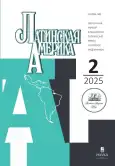Contemporary practices of communal childcare in Brazil
- Autores: Semenova O.V.1
-
Afiliações:
- Institute of Ethnology and Anthropology, Russian Academy of Sciences
- Edição: Nº 2 (2025)
- Páginas: 19-31
- Seção: Policy
- URL: https://bakhtiniada.ru/0044-748X/article/view/277016
- DOI: https://doi.org/10.31857/S0044748X25020024
- ID: 277016
Citar
Resumo
In this article we address the topic of the possible transformation of cooperative breeding practices in modern Brazilian families. With increasing urbanization traditional kinship assistance from grandparents in childcare is giving way to community practices concerning child welfare. According to the analyzed ethnographic literature, in poor neighborhoods approximately half of the women had placed a child with a substitute family or at the state orphanage. The article discusses modern practices of such public concern for children as Brazilian adoption (adoção à brasileira) and directed adoption (adoção intuiti personae). Although they are often carried out bypassing the official "letter of the law", in most cases they are aimed at creating favorable conditions for the upbringing of the adopted child, including fostering social attachment between the minor ward and their guardian. The conclusions drawn in this article emphasize the importance of social integration of members of Brazilian society, fully incorporated into extended social networks in urban agglomerations. In contemporary Brazil, such childcare practices and child circulation illustrate the eusocial characteristics of social organization.
Palavras-chave
Texto integral
Sobre autores
Olga Semenova
Institute of Ethnology and Anthropology, Russian Academy of Sciences
Autor responsável pela correspondência
Email: m4248296@yandex.ru
ORCID ID: 0000-0002-0015-243X
Código SPIN: 9497-0339
к. и. н., научный сотрудник
Rússia, 32a Leninsky prospekt, Moscow, 119991Bibliografia
Arquivos suplementares








